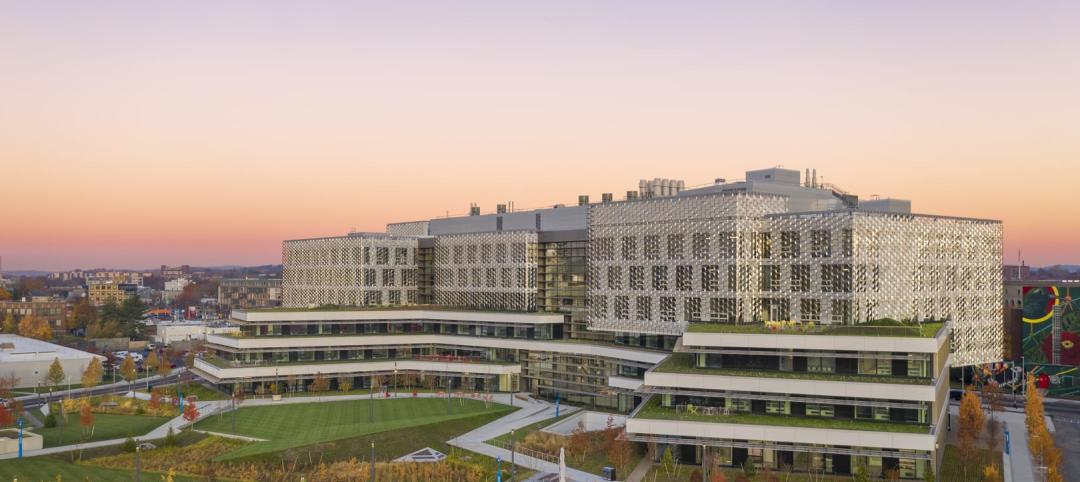In less than half a decade, the wellness movement has taken hold in the global real estate market. As of mid-April, nearly 2,600 building projects across the globe were either certified or registered through the International WELL Building Institute’s WELL Standard or the Center for Active Design’s Fitwel rating system.
Even more impressive, 4,360 design, construction, and real estate professionals have earned their WELL Accredited Professional status, and another 3,485 WELL APs are in the making. Tack on Fitwel’s cadre of 1,900+ “Ambassadors” and active users, and we’re looking at an army 9,400 strong pushing the merits of these programs.
Corporate America also has jumped on the wellness train. In 2017, nearly half of all worksites in the U.S. offered some type of health promotion or wellness program, including an astounding 92% of worksites with 500+ employees, according to the Centers for Disease Control and Prevention.
Clearly, wellness in the workplace has become big business, especially for large employers that hope their investment in healthier, lower-stress work environments will lead to improved employee health and, ultimately, lower healthcare costs.
ALSO SEE: Half of corporate and government offices offer wellness programs (CDC study)
But getting wellness to pay off may not be that simple, or even a wise investment to begin with, as evidenced by a peer-reviewed study published last month in The Journal of the American Medical Association (BDCnetwork.com/WellnessStudy19). The study involved a randomized trial of 32,974 employees across 160 worksites (20 sites with wellness plans, 140 control sites) at a large U.S. warehouse retail company.
First the good news: After 18 months, the worksites with the standardized wellness program had an 8.3-percentage point higher rate of employees who reported engaging in regular exercise (69.8% vs. 61.9%, with an adjusted difference of 0.03) and a 13.6-percentage point higher rate of employees who reported actively managing their weight (69.2% vs. 54.7%).
Now the not-so-positive news: When looking at the traditional measures of health, particularly as they pertain to health insurance premiums—namely cholesterol, blood pressure, and body mass index—there were no significant differences between the treatment group and the control group after 18 months. The same for healthcare spending and utilization, absenteeism, tenure, job performance, sleep quality, and even food choices.
It seems, according to this study at least, that workplace wellness programs can create environments that promote improved health behaviors among employees, but achieving lower healthcare spending and utilization are a stretch.
On another note, the BD+C editorial team needs your input for a first-of-its-kind AEC industry research project. For more than 40 years, BD+C editors have ranked the nation’s largest AEC firms as part of our annual Giants 300 Report. This year, we’re launching a companion research survey focused on tech and innovation trends at AEC Giant firms. If your firm is an AEC Giant and is adopting and vetting advanced tech tools, we invite you to participate in our 10-minute, 11-question Giants Tech and Innovation Survey. The results will be published this fall in BD+C. Take the survey at: BDCnetwork.com/TechSurvey19.
Related Stories
Green | Apr 21, 2023
Top 10 green building projects for 2023
The Harvard University Science and Engineering Complex in Boston and the Westwood Hills Nature Center in St. Louis are among the AIA COTE Top Ten Awards honorees for 2023.
Green | Apr 18, 2023
USGBC and IWBI unveil streamlined certification pathway for LEED and WELL green building programs
The U.S. Green Building Council, Green Business Certification Inc., and the International WELL Building Institute released a streamlined process for projects pursuing certifications for the LEED green building rating system and the WELL Building Standard. The new protocol simplifies documentation for projects that are pursuing both certifications at the same time or that have already earned one certification and are looking to add the other.
K-12 Schools | Apr 18, 2023
ASHRAE offers indoor air quality guide for schools
The American Society of Heating, Refrigerating and Air-Conditioning Engineers (ASHRAE) has released a guide for educators, administrators, and school districts on indoor air quality. The guide can be used as a tool to discuss options to improve indoor air quality based on existing HVAC equipment, regional objectives, and available funding.
Mixed-Use | Apr 7, 2023
New Nashville mixed-use high-rise features curved, stepped massing and wellness focus
Construction recently started on 5 City Blvd, a new 15-story office and mixed-use building in Nashville, Tenn. Located on a uniquely shaped site, the 730,000-sf structure features curved, stepped massing and amenities with a focus on wellness.
Cladding and Facade Systems | Apr 5, 2023
Façade innovation: University of Stuttgart tests a ‘saturated building skin’ for lessening heat islands
HydroSKIN is a façade made with textiles that stores rainwater and uses it later to cool hot building exteriors. The façade innovation consists of an external, multilayered 3D textile that acts as a water collector and evaporator.
Sustainability | Apr 4, 2023
ASHRAE releases Building Performance Standards Guide
Building Performance Standards (BPS): A Technical Resource Guide was created to provide a technical basis for policymakers, building owners, practitioners and other stakeholders interested in developing and implementing a BPS policy. The publication is the first in a series of seven guidebooks by ASHRAE on building decarbonization.
Sustainability | Apr 4, 2023
NIBS report: Decarbonizing the U.S. building sector will require massive, coordinated effort
Decarbonizing the building sector will require a massive, strategic, and coordinated effort by the public and private sectors, according to a report by the National Institute of Building Sciences (NIBS).
Multifamily Housing | Mar 24, 2023
Momentum building for green retrofits in New York City co-ops, condos
Many New York City co-op and condo boards had been resistant to the idea of approving green retrofits and energy-efficiency upgrades, but that reluctance might be in retreat.
Geothermal Technology | Mar 22, 2023
Lendlease secures grants for New York’s largest geothermal residential building
Lendlease and joint venture partner Aware Super, one of Australia’s largest superannuation funds, have acquired $4 million in support from the New York State Energy Research and Development Authority to build a geoexchange system at 1 Java Street in Brooklyn. Once completed, the all-electric property will be the largest residential project in New York State to use a geothermal heat exchange system.
Sustainability | Mar 16, 2023
Lack of standards for carbon accounting hamper emissions reduction
A lack of universally accepted standards for collecting, managing, and storing greenhouse gas emissions data (i.e., carbon accounting) is holding back carbon reduction efforts, according to an essay published by the Rocky Mountain Institute.

















